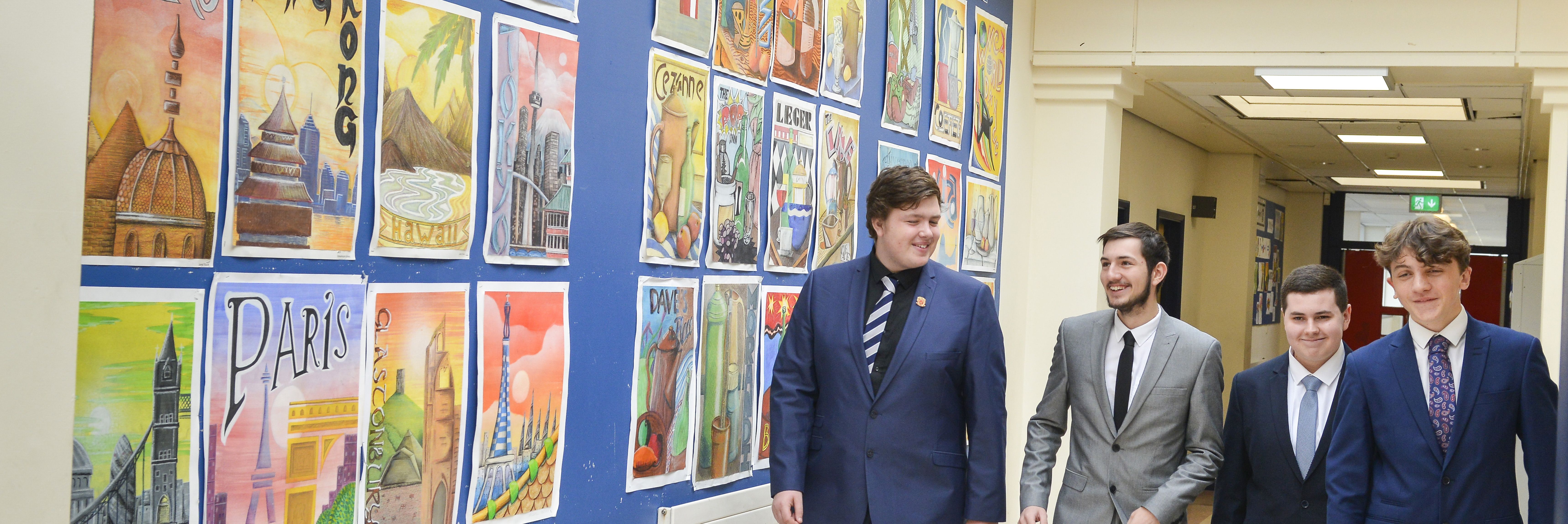The Knowledge and Skills overviews show the specific historical content students will learn in each unit of study throughout the year. These documents outline both the substantive knowledge (historical events, periods, and concepts) and the disciplinary skills (source analysis, causal reasoning, and historical interpretation) that students will develop. Each unit is broken down to clearly identify what students need to know and what they should be able to do upon completion. Through the systematic development of both knowledge and skills, students build historical awareness, analytical capabilities, and a deeper understanding of the past and its relevance to the present.
Select a unit to find out more...
What were the causes of the First World War?
| Unit Progress Criteria |
| Substantive Knowledge |
Disciplinary Knowledge |
- Gavrilo Princip’s assassination of Franz Ferdinand
- Serbia and Austria both aimed to control Bosnia
- The Austrian ultimatum
- Franco-Prussian War: Long and short-term consequences
- Case studies of imperial conflicts – Africa, Asia, naval arms race
- Germany’s desire for a ‘place in the sun’ (Weltpolitik)
- Emergence of Serbia as a nationalist power and ambition to absorb Bosnia
- State of European alliances in 1878 and 1907
- Results of German diplomatic mistakes
- Obligations of the great powers according to their treaties
- The events of the July Crisis of 1914
- The order in which countries declared war
|
- Causation – the idea of a ‘trigger’ or a ‘spark’ for an event
- French humiliation and desire for revenge
- Effect of the emergence of Germany on balance of power
- Increased tension due to the examples of conflict given in the case studies
- The idea of increased hostility – not a direct cause of war, but making it more likely
- Causes of Austro-Serbian conflict
- Intersection of great powers’ ambitions (e.g. Russia and the Dardanelles, French loans to Serbia, etc)
- Emergence of Triple Entente and Triple Alliance – focus on German diplomatic failures
- Why Germany felt threatened by the Entente (link to the Schlieffen Plan)
- Consequences of treaty obligations in the event of FF’s assassination
- How the alliances may have restricted the powers’ options during the crisis
- The complex, multi-national nature of the crisis
- Consider ways in which the story has been told
- The issue of blame and inevitability
|
Is Alan Clark right about the British generals during the First World War?
| Unit Progress Criteria |
| Substantive Knowledge |
Disciplinary Knowledge |
- Details of the Schlieffen plan
- Reasons for failure
- Stalemate on the Marne leads to trench warfare
- Life in the trenches – duties, dangers, disease
- Time spent in the trenches during ‘normal’ months
- Battalion’s timetable for a month outside the trenches – Jan 1917
- Disaster on the first day of the Somme
- Improvements and innovations during the rest of the battle of the Somme – creeping barrage, tanks, etc
- Failures at Loos – comms, artillery, tanks, aircraft, infantry
- New developments – creeping barrage, tanks, etc
- Deployment of new tactics and technologies at Cambrai – reasons for success.
|
- Causation - reasons for the failure of the Schlieffen plan, including the language of causation from the literacy display
- Interpretations – what is accurate / inaccurate about Clark’s interpretation?
- Is Clark wrong to claim that there was ‘slaughter and exhaustion’?
- Interpretations – what is accurate / inaccurate about Clark’s interpretation?
- Is Clark wrong about the Somme? Why does he only mention the first day?
- The extent of change by Cambrai (late 1917)
- Interpretations – what is accurate / inaccurate about Clark’s interpretation?
- Is Clark right to describe battles as ‘hopeless offensives’? Which battles would meet this description?
|
How similar were the experiences of Britain's 'forgotten armies'?
| Unit Progress Criteria |
| Substantive Knowledge |
Disciplinary Knowledge |
- Indian sepoys on the Western Front, 1914
- Arab rebels fighting the Ottomans; role of TE Lawrence
- Role of the Chinese Labour Corps
- Myth of Lettow-Vorbeck and the Schutztruppe
- Askaris and porters in East Africa
|
- Comparison of roles and experiences for each group of ‘forgotten’ soldiers
|
Why was Millicent Fawcett given a statue in Parliament Square?
| Unit Progress Criteria |
| Substantive Knowledge |
Disciplinary Knowledge |
- Formation of the NUWSS and the WSPU
- Millicent Fawcett and law-abiding protest
- Emmeline Pankhurst; examples of militant protest
- Emily Davison
- Great Pilgrimage of 1913
- Suffragettes and suffragists during WW1
- Munitions workers during WW1
|
- Understanding that Millicent Fawcett was deemed the most significant figure by a Parliamentary committee
- Consideration of contributions made by each group and by individuals
- Consideration of how their actions have been portrayed by media, by schools, etc
- Explanation of why Fawcett was deemed most significant
|
How similar were Port Sunlight and Leverville?
| Unit Progress Criteria |
| Substantive Knowledge |
Disciplinary Knowledge |
- Origins of Lever Brothers, Port Sunlight and Sunlight Soap
- Acquisition of palm plantations in the Belgian Congo
- Living conditions in Port Sunlight and Leverville
- Working conditions in Port Sunlight and Leverville
- Coercion in Port Sunlight and Leverville
- Examples of resistance in Port Sunlight and Leverville
|
- Focus on economic concept of ‘labour’ – perhaps with reference to Labour’s recent struggle to define a ‘working person’
- Understanding and explanation of differences and similarities between Port Sunlight and Leverville
|
Was truth the "first casualty of war" during the Second World War?
| Unit Progress Criteria |
| Substantive Knowledge |
Disciplinary Knowledge |
- Reasons for evacuation
- Experiences of evacuees
- Portrayals of evacuation in the media
- Role of Home Guard
- Use of gov’t propaganda to recruit Home Guard and women workers
- Changing role of women during WW2
- Merseyside Blitz
- Reporting of the Blitz – censorship and responsibility
|
- Consideration of the purposes of propaganda and different forms of media during war time
- Evaluation of accuracy of various primary sources from WW2
- Consideration of how sources were tailored to a specific audience
- Discussion of ethics of censorship during wartime
|
Why and how did the Holocaust happen?
| Unit Progress Criteria |
| Substantive Knowledge |
Disciplinary Knowledge |
- Anti-semitic persecution during the 1930s in Germany
- Construction and purpose of ghettos
- ‘Holocaust by bullets’ – role of the Einsatzgruppen; case study of Babi Yar
- Reasons for and aims of the Final Solution
- Extermination camps - case study of Auschwitz
- Discussion of responsibility – contrasting views of Browning and Goldhagen
|
- Reasons for Nazis’ use of ghettos; different types of and conditions in ghettos
- Explaining the role of the Einsatzgruppen
- Reasons for Final Solution and use of extermination camps
- Judgement about responsibility and role of different groups within Germany (based on Goldhagen / Browning debate)
|











